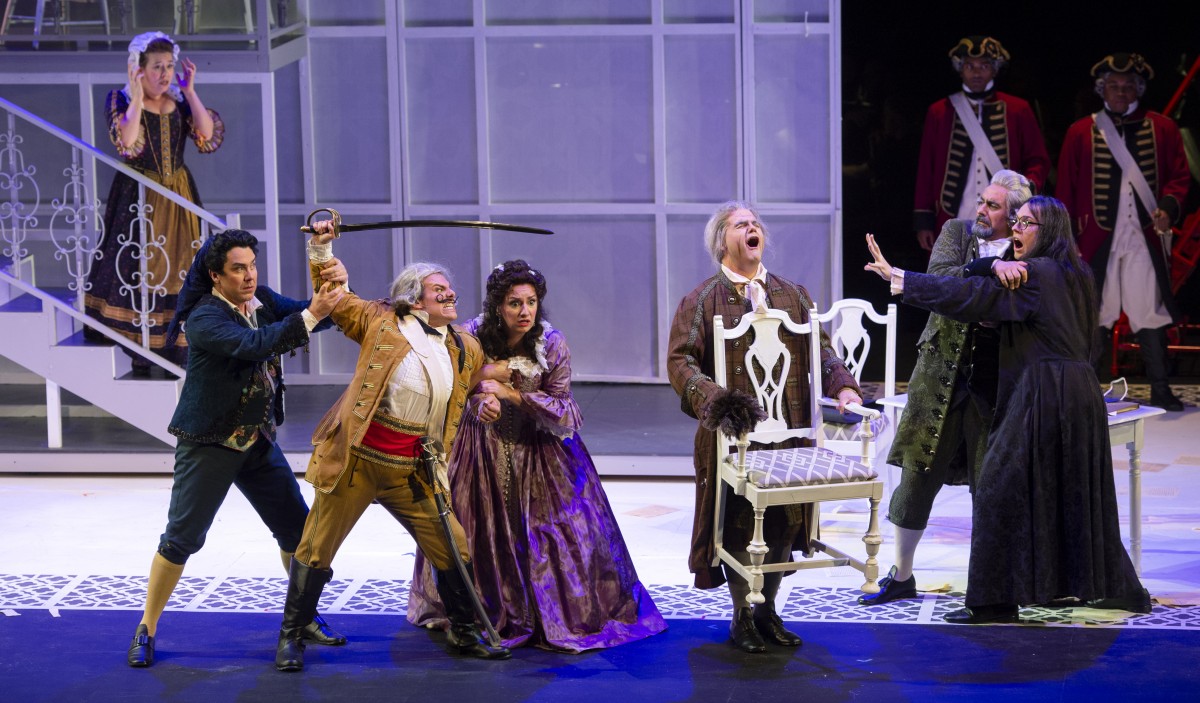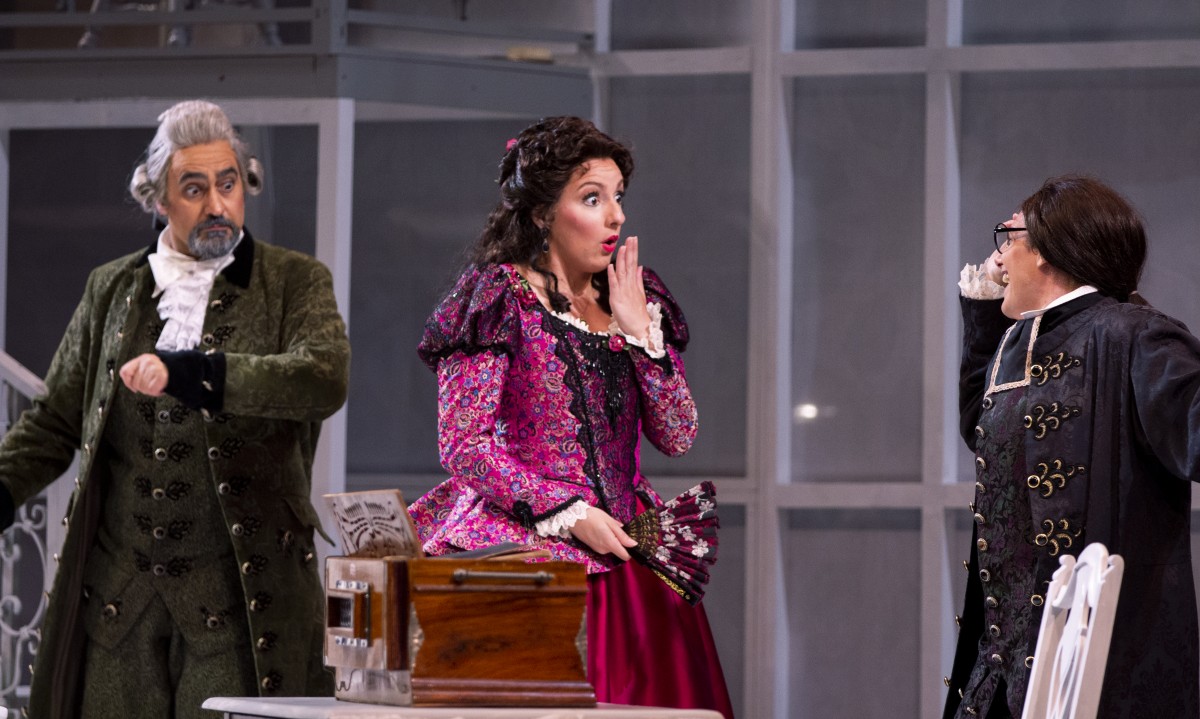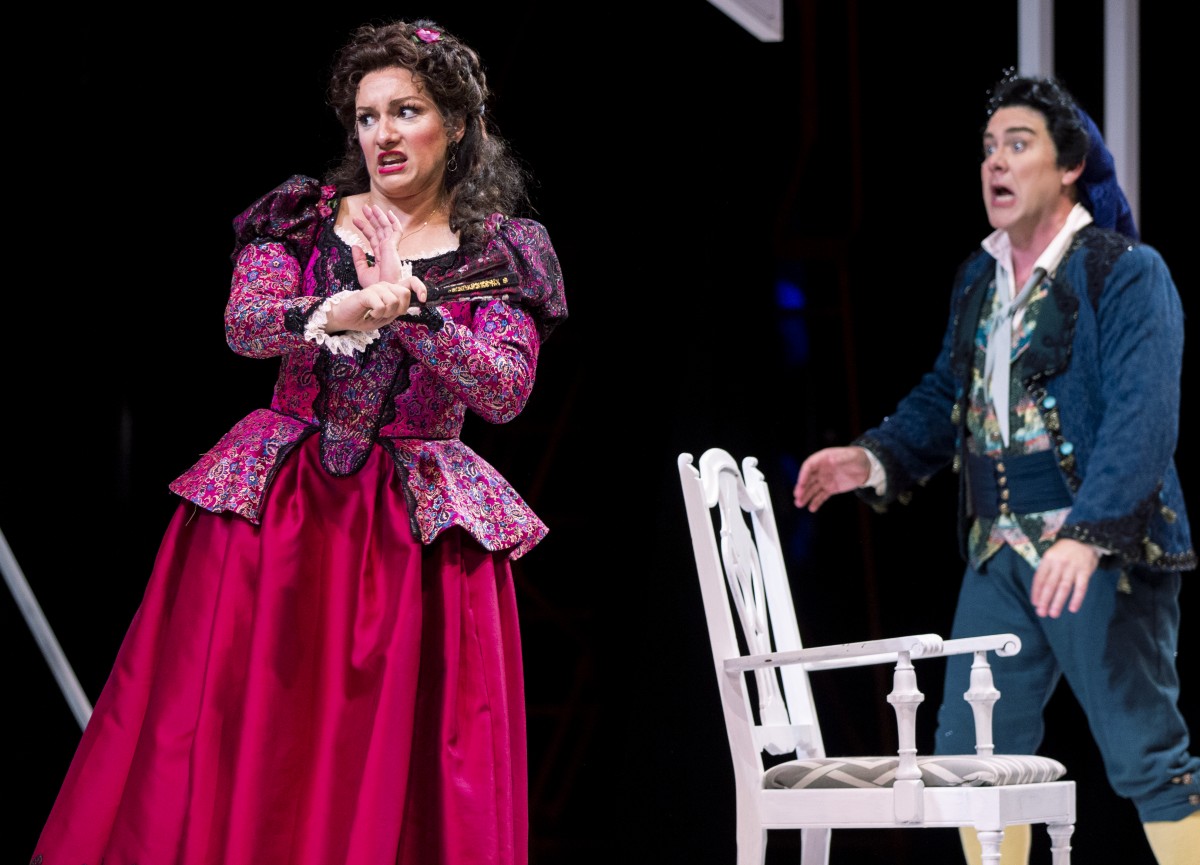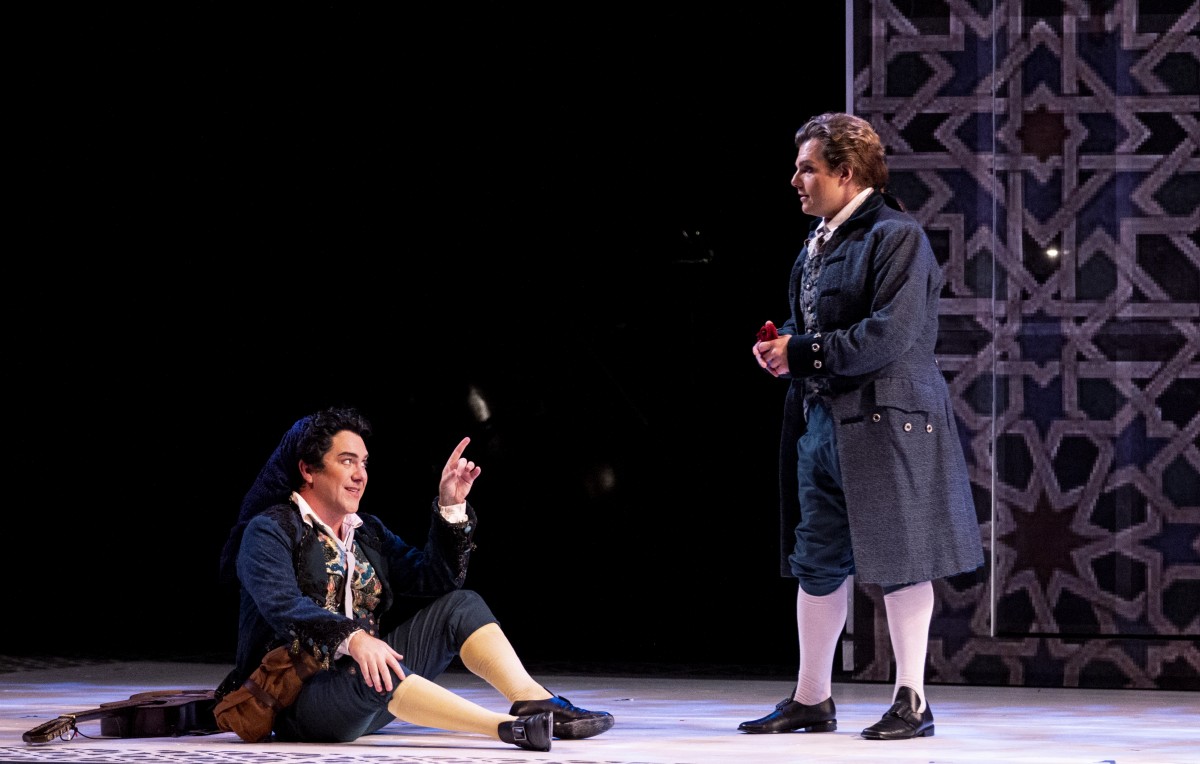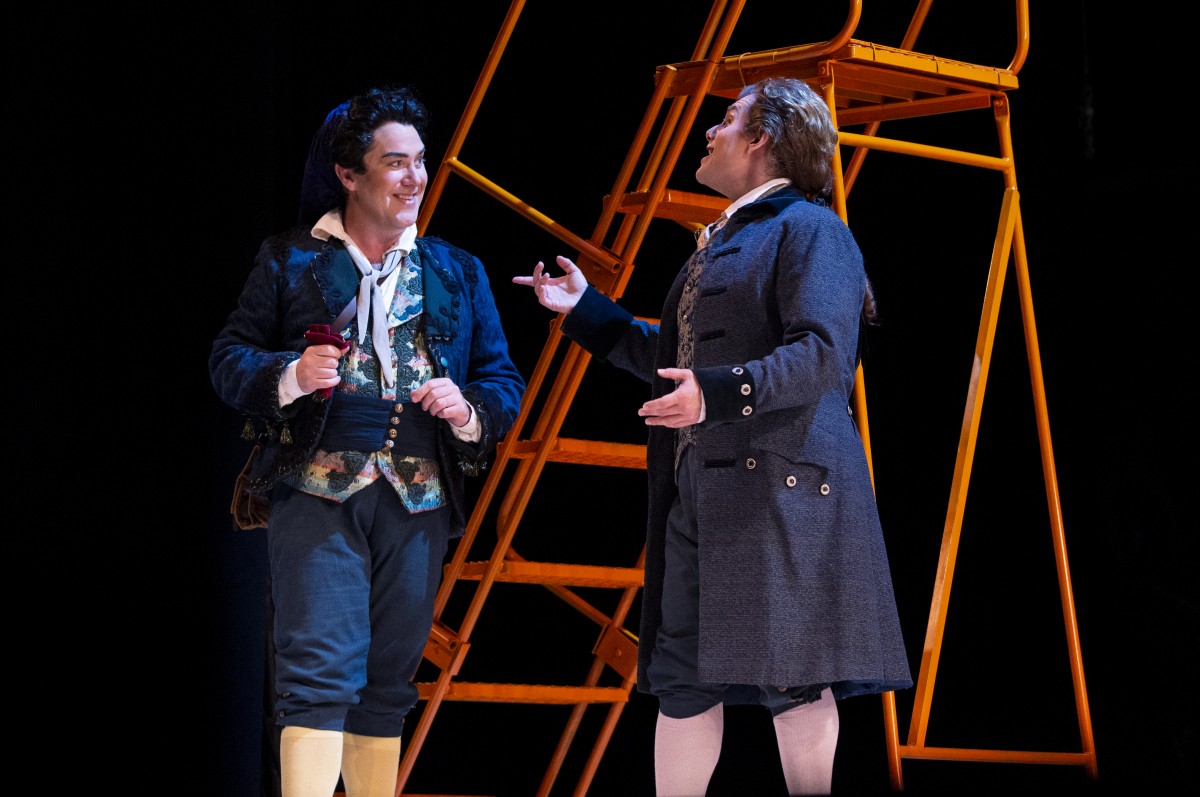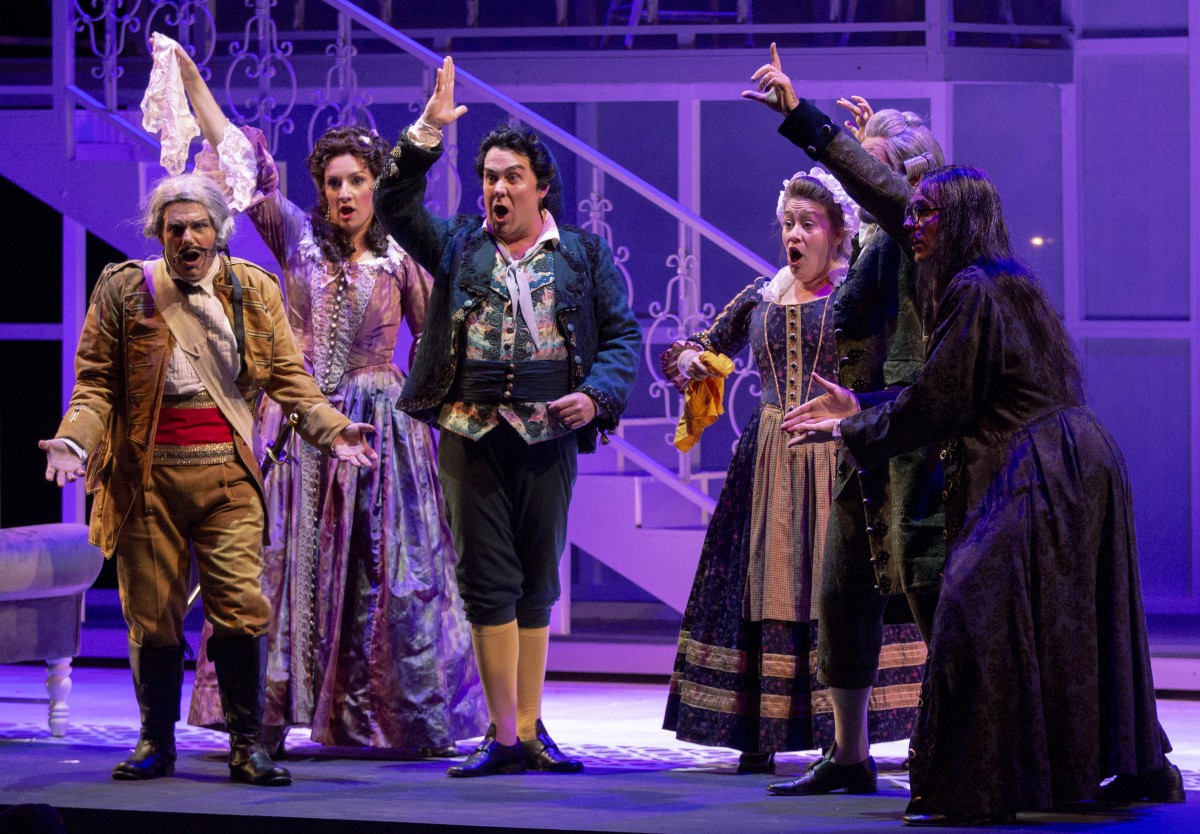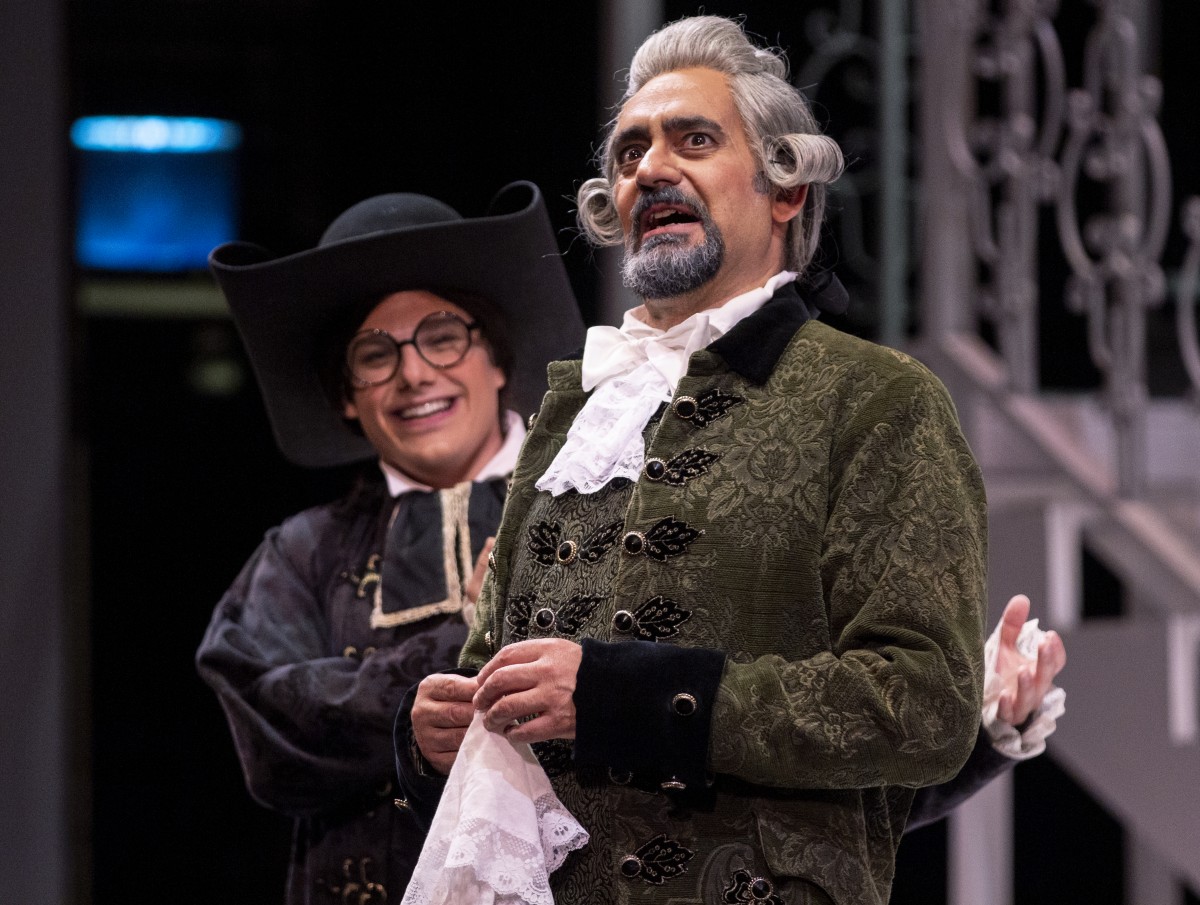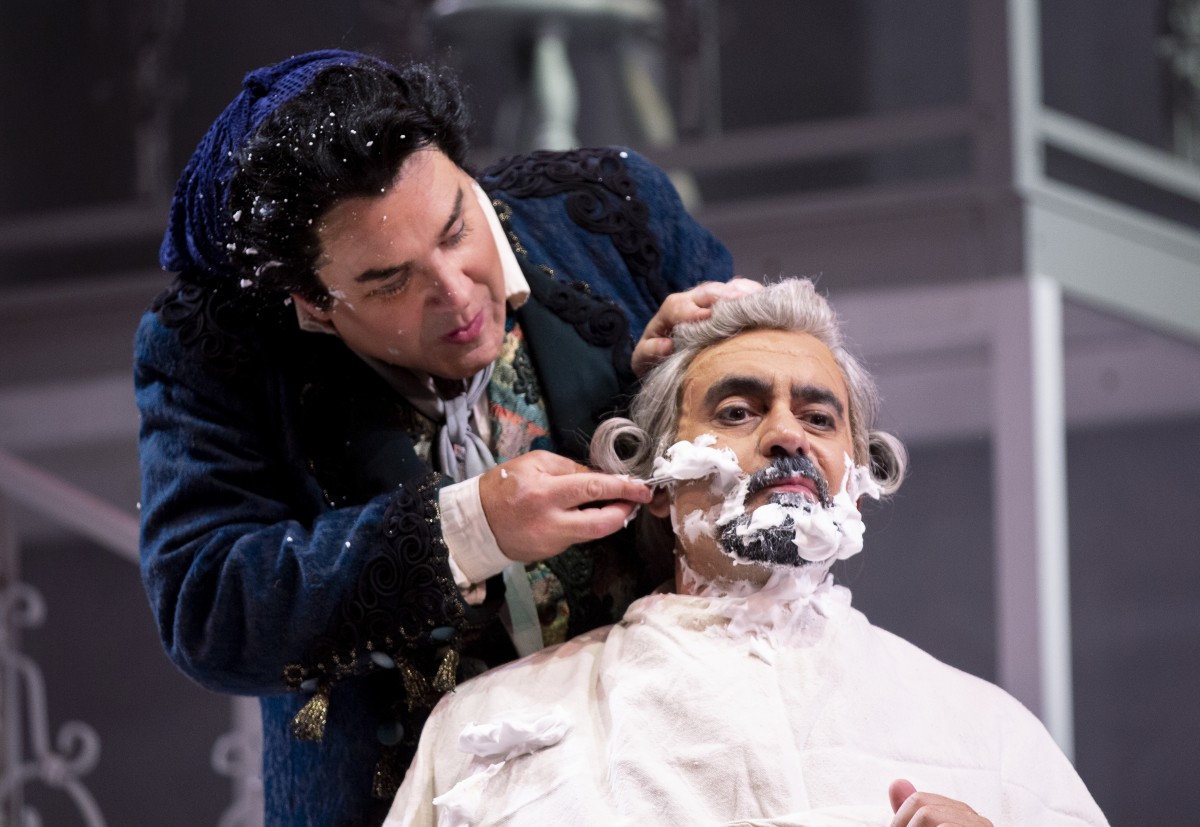Baritone Daniel Belcher has been playing Figaro for 23 years. With a fitting voice and exemplary comedic timing, Belcher has fully embraced the character; Figaro has become a part of Belcher.
“I always say that visiting Figaro is like visiting an old friend,” Belcher said. “When I describe my Figaro — it’s kind of like any role actually — at the end of the day, it’s just me.”
Belcher said he’s comfortable with the role but is looking forward to seeing a new side of the character with a new cast.
Chautauqua Opera Company will open Rossini’s Il Barbiere di Siviglia — known more commonly as The Barber of Seville — at 4 p.m. Friday, July 5 in Norton Hall. The opera is described as an “opera buffa,” which means a comedic opera where the comedy is written within the music.
Il Barbiere di Siviglia, based on the play of the same name written by Pierre Beaumarchais, is set three years before The Marriage of Figaro, another Beaumarchais play and an opera by Mozart; it offers insight into the beginnings of the characters’ relationships.
Il Barbiere di Siviglia is a story about a love-struck nobleman, Count Almaviva — played by Young Artist Blake Friedman, tenor — who hopes to make the lovely Rosina — played by Guest Artist Aleks Romano, mezzo-soprano — fall in love with him. Rosina is the ward of the forever grumpy Dr. Bartolo, played by baritone Guest Artist Marco Nisticò, who hopes to marry Rosina when she comes of age. The Count asks Figaro to help him in his quest to meet Rosina, which sets the scene for the rest of the opera.
The characters are dealing with 18th-century problems, like class stature, but in the end, it’s a basic love story. Belcher said that as the first story in the Figaro Trilogy, it sets the scene for deep topics in the following works; the trilogy begins with The Barber of Seville, followed by The Marriage of Figaro and The Guilty Mother.
“When Beaumarchais was writing (Il Barbiere di Siviglia), he was really just introducing these characters first,” Belcher said.
Kathleen Smith Belcher, stage director for Il Barbiere di Siviglia, said that comedy is key to the plot, but getting the comedic timing right is more difficult than people realize.
“Comedy is a lot harder,” Smith Belcher said. “And it’s all about timing.”
She said sometimes if a wrong step is taken or the actor misses a beat, then it throws the rest of the bit off, which is even more difficult when the comedic timing is written into the music.
“One of my rules of comedy is the people aren’t funny, the situation is,” Smith Belcher said. “It’s about trying to pull people back that are trying to be funny when, really, I want them to just be real people with real problems.”
The character of Figaro is a jack of all trades and manipulates almost everything in the opera, which drives the situational comedy. Smith Belcher was inspired by Beaumarchais, who was a playwright, clockmaker and polymath. In this production, Figaro stops time and moves it in order to help the lovelorn Count.
“He manipulates everything in the play and opera anyway,” Smith Belcher said. “He was able to, among his other tasks, manipulate time as well — he stops time when he needs to.”
Belcher said the element of time fits well with the music, creating a fun twist on the traditional story.
The cast is a mix of Guest Artists and Young Artists, bringing together opera singers with varying experiences. Smith Belcher said the cast members are familiar with the opera, making the rehearsal process smooth.
“When everybody comes on their A-game, and this team is, it’s like kids with a toy box,” Smith Belcher said. “It’s just a lot of fun.”
Romano, who plays Rosina, has been in Il Barbiere di Siviglia several times throughout her professional career.
“I love spitfire female characters,” Romano said. “She is a bit of a spitfire and this music is all about showing the virtuosity of the voice, but she’s not here to just sing pretty notes.”
For Friedman, it’s the second time that he has played the role of the Count. Count Almaviva disguises himself in different roles to get closer to Rosina.
“In some ways, I look at (The Count’s situation with) Rosina as a parallel to my own life in trying to get into the career of being an opera singer,” Friedman said. “I literally get into different characters to try to find a way to make it to the end goal of working as an opera singer.”
The cast brings the lighthearted romantic comedy to life, creating something that everyone can enjoy. Belcher said there is a stigma that opera is traditional and difficult to understand, but this opera defies that stigma. Chautauqua Opera’s production of Il Barbiere di Siviglia is visually and audibly interesting, perfect for all types of audiences, Belcher said.


